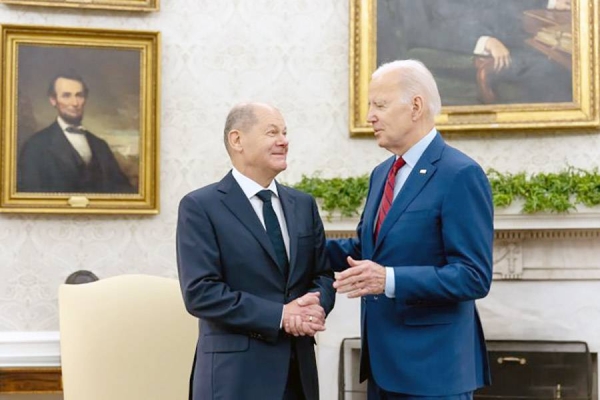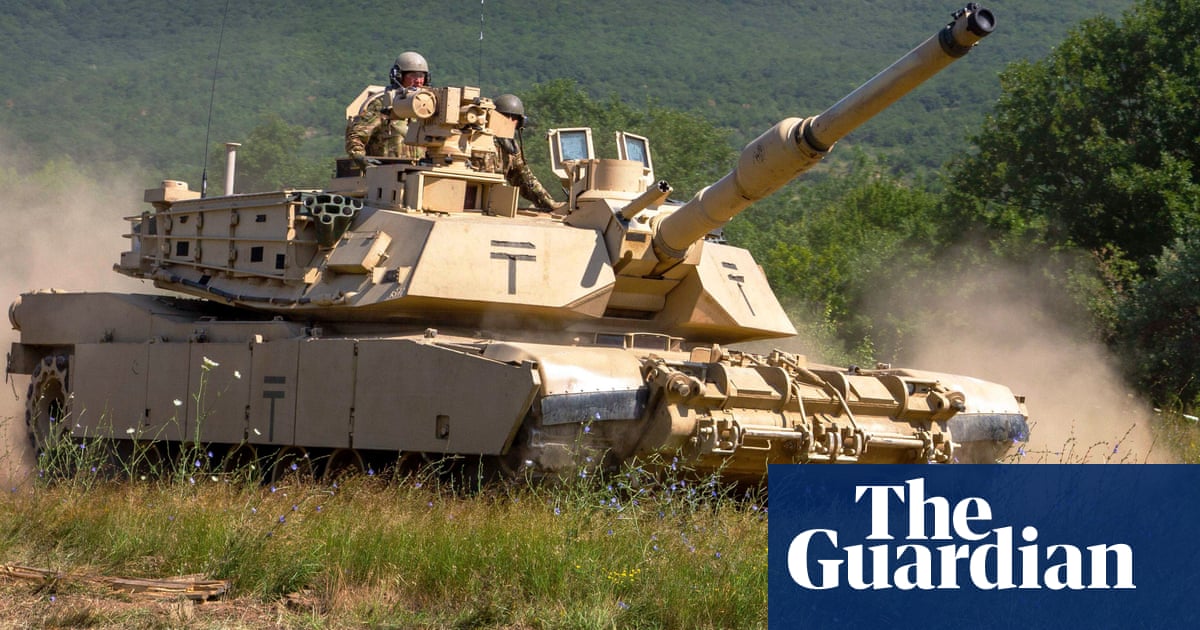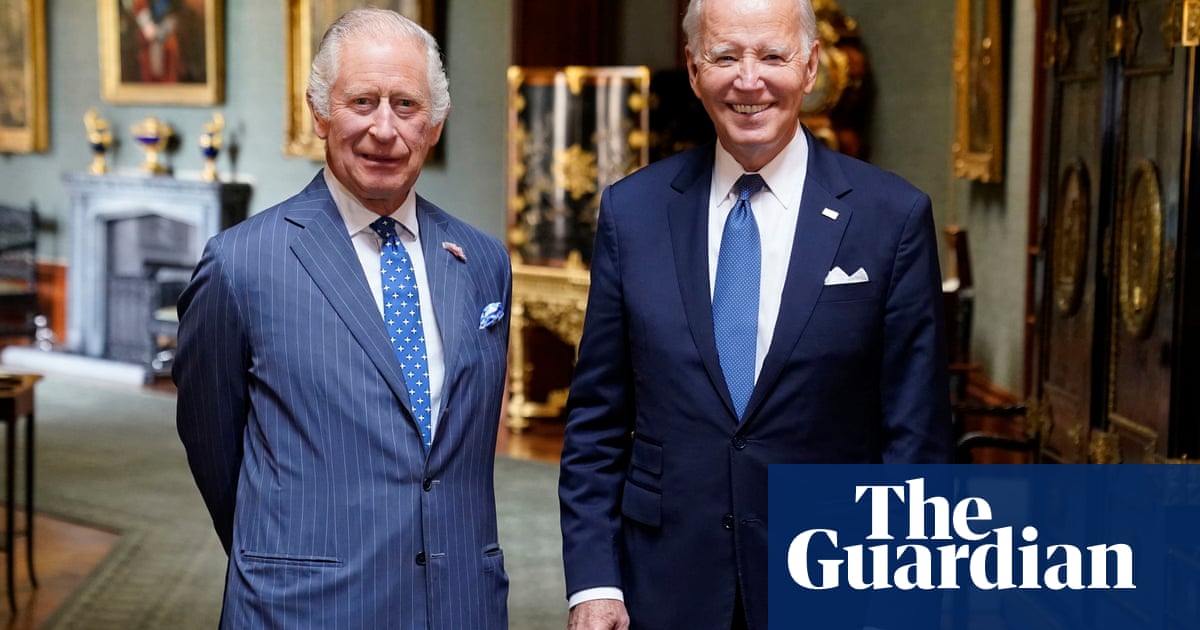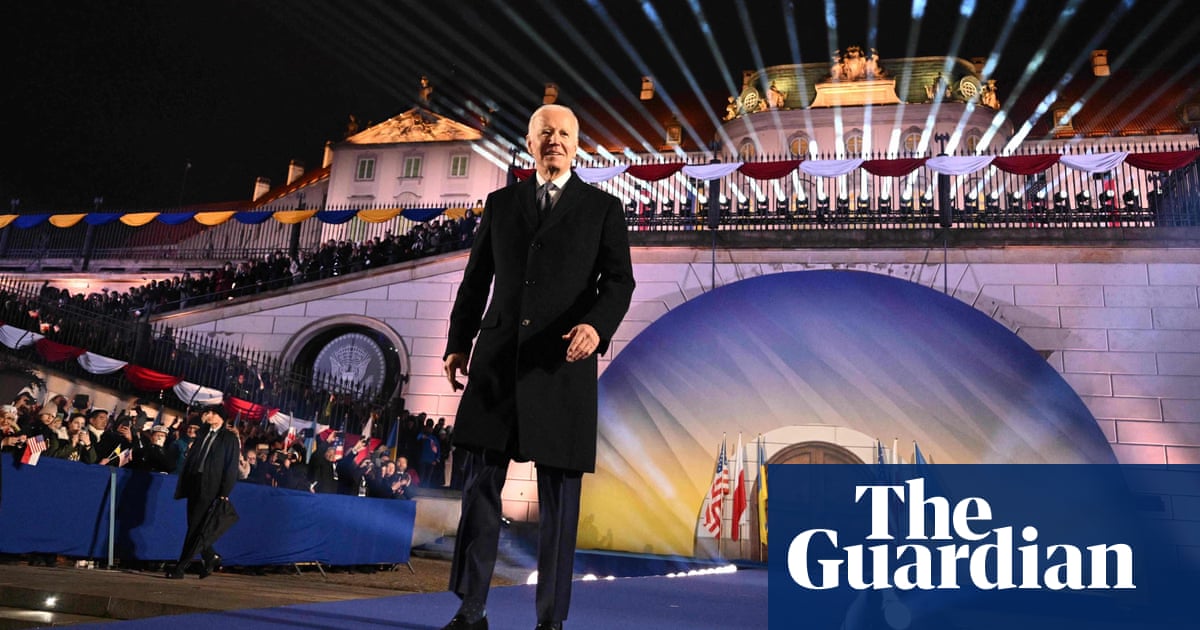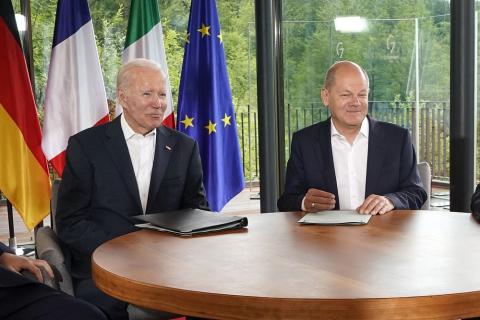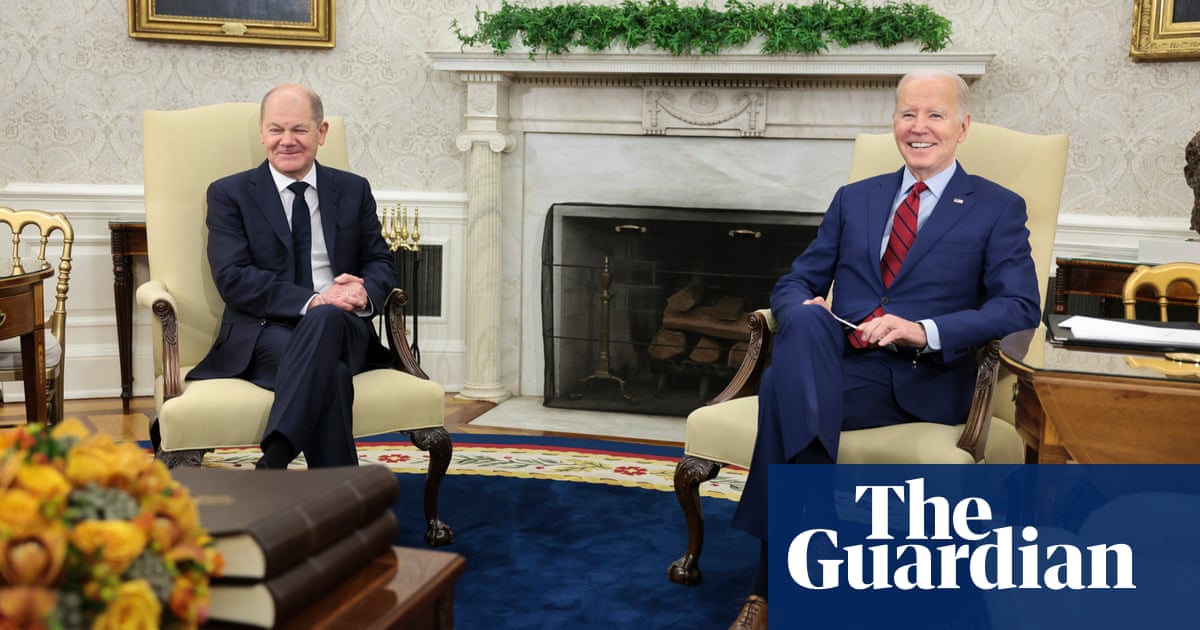
Joe Biden has hailed Olaf Scholz for Germany’s “critical military support” for Ukraine, acknowledging in a White House meeting that, in the face of stiff domestic political resistance, such backing had been “very difficult” for the chancellor.
The meeting of the US and German leaders on Friday comes shortly after the first anniversary of Vladimir Putin’s full-scale invasion of Ukraine and at a time when both are facing political challenges to their efforts to maintain the flow of military and economic support to Kyiv.
“We made it clear that if [Putin] moved, we would both respond, and together we made good on that promise,” Biden told Scholz at the start of the White House meeting, noting that the last time the chancellor had visited, the Russian invasion was about to be unleashed. “And I want to thank you, Olaf, for your strong and steady leadership. I mean that sincerely. It’s made a world of difference.
“You stepped up to provide critical military support, and I would argue, beyond the military support, the moral support you’ve given Ukrainians has been profound.”
In response, Scholz stressed the importance of western unity in backing Ukraine and added: “At this time I think it’s very important that we give the message that we will continue to do so as long as it takes.”
Scholz came on a working visit to the US, stripped of any pomp or protocol. No press conference has been planned for Friday afternoon’s meeting and the chancellor brought a minimal delegation with him. He described bilateral relations as “a consequential partnership that is really in a very good shape today”.
Part of Biden’s message was gratitude for Scholz’s agreement to allow the delivery of armoured vehicles, anti-aircraft systems and 18 German-made Leopard tanks to Ukraine, though in a recent interview the US national security adviser, Jake Sullivan, made clear that the White House had to agree to ship US Abrams tanks too in order to persuade Scholz to act, a characterisation that Berlin disputes. Washington has also voiced admiration for how quickly Germany has reduced its dependence on Russian gas.
Before the meeting, the US signalled its willingness to continue backing Ukraine, announcing a new package of military aid, including mobile bridges mounted on armoured vehicles that would be critical to any Ukrainian counteroffensive, as well as more Himars, multiple rocket launchers. Biden will be looking for continuing parallel commitments from Germany and Europe in what is likely to be a pivotal few months in the conflict.
“Without question, they’re going to talk about the kinds of capabilities that Ukraine continues to need in the weeks and months ahead,” the US national security council spokesperson, John Kirby, said.
The administration acknowledges that Scholz has gone a long way to move Germany from a position of pacifist neutrality to providing significant military aid to Kyiv to resist the Russian invasion, but it is also aware he faces considerable resistance inside Germany. Scholz’s chief of staff has cited budgetary constraints as the reason that Germany will not expand its military spending as fast as promised.
“It’s really an opportunity to take stock of the war, to examine future scenarios and also think about how leaders on both sides of the Atlantic can sustain momentum as well as support for Ukraine, because electorates are getting war-weary,” said Sudha David-Wilp, a Berlin-based senior fellow at the German Marshall Fund thinktank.
In his remarks before the meeting, Kirby noted that Biden and Scholz had recently met Ukraine’s president, Volodymyr Zelenskiy, and said they would want to discuss those meetings. Washington is anxious that Ukraine and its backers stay on the same page in turns of war aims and strategy, in advance of a Nato summit in Lithuania in July.
Another item high up the agenda, according to US officials, is China, which Washington believes is on the cusp of breaking precedent and supplying weapons to Russia to help Vladimir Putin sustain the invasion. The US has passed sanctions on some Chinese companies for supplying dual-use items, and has threatened far tougher measures if Beijing starts sending arms. If that happens, Biden would like European support in following suit, and Germany’s response would be critical in raising the costs to China of throwing more support behind Putin.
“So far, we haven’t seen that China has provided lethal aid to Russia, but obviously it’s very much a situation that we’re tracking,” the senior US official said. “Russia’s war in Ukraine has put China in a difficult position, and every step that China takes toward Russia makes it harder for China with Europe and with others around the world. It’s a distraction for China and a potential blow to their international relationships that they don’t need or want.”
Scholz has publicly warned China about arming Russia, but David-Wilp said imposing broad sanctions “will not be an easy proposition for the Europeans, especially Germany because China is a top trading partner”.
She added: “But there is also a growing realisation in Germany that it can’t be business as usual with China. This turning point for Germany has made clear that they can’t necessarily just follow this idea of ‘change through trade’ and not think about the hard power issues involved with trading with autocratic powers.”




